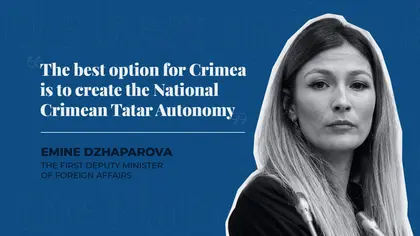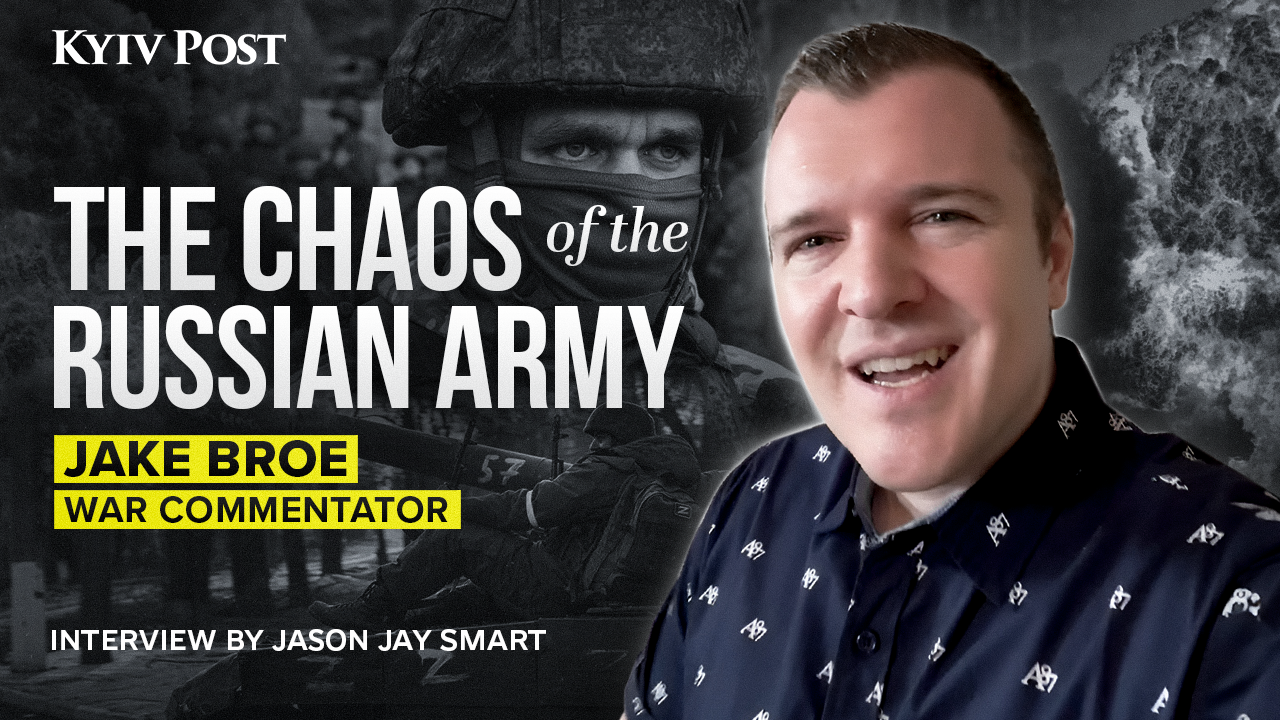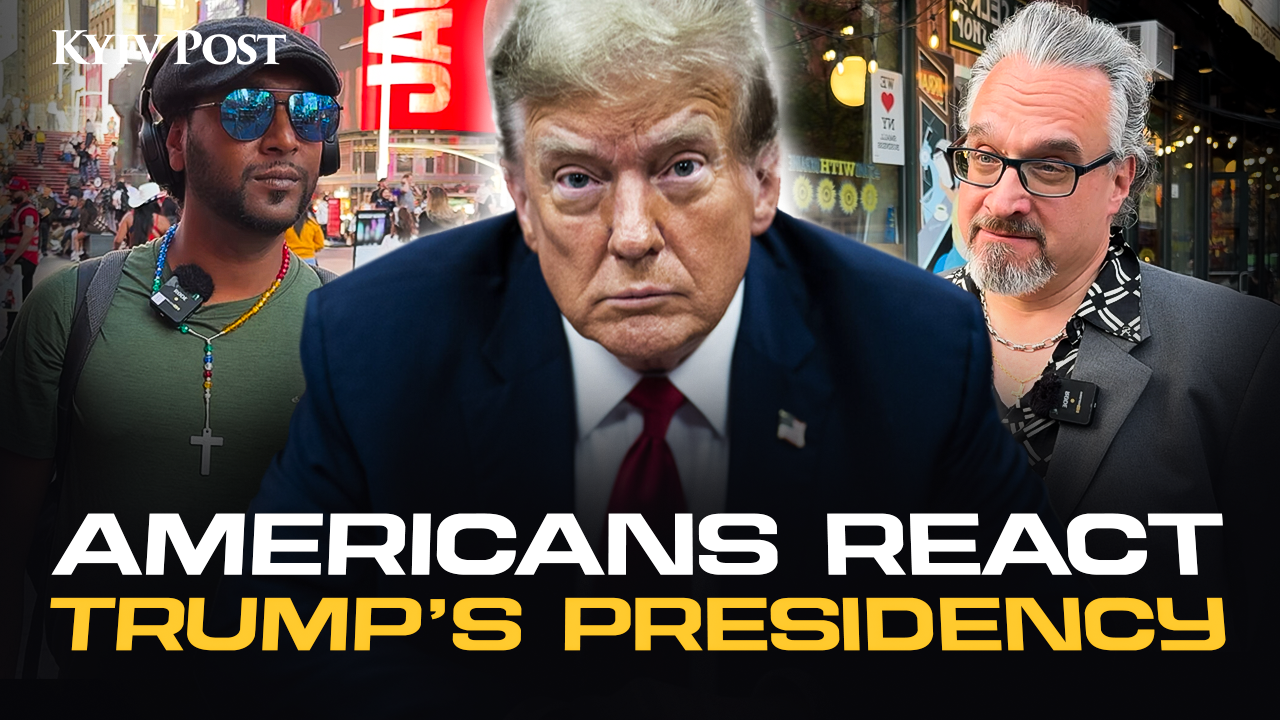Emine Dzhaparova is a well-known Crimean Tatar activist and the First Deputy Minister of Foreign Affairs. She has played a role not only in building successful diplomatic ties with Ukraine's international partners but also placing the issue of Crimea on the world agenda. In 2022, Dzhaparova received the 2022 Mark Palmer Award from the Freedom House organization for the development of democracy and the promotion of human rights.
In an exclusive interview with the Kyiv Post, Dzaparova talked about the situation in the Russian-occupied Crimea, the oppression of the Crimean Tatars, and a future role for NATO on the peninsula.
In the second part of the interview, she will discuss her official visit to India and the future prospects for the development of bilateral relations.
There has been a lot of talk lately about the liberation of Crimea from Russian occupation this year. From time to time, photos of the Russians preparing for defense on the peninsula appear on the Internet. Do you know what the mood is like in Crimea?
The mood in Crimea is polarized since Russia has been committing its crimes for almost 10 years in a row. One such crime is population substitution. At least 800,000 additional people were settled on the peninsula with a population of 2.5 million during these years.
This is part of Russian crimes, and it is done on purpose. Russia is forming a loyal population who will later justify its crimes. Today, the military personnel, teachers, and others who were resettled there are in one way or the other affiliated with Russia.

N. Korean Troops Massed in Russia to Enter Ukraine War ’Soon’: Pentagon Chief
Part of the population in Crimea is looking forward to re-uniting with the rest of Ukraine, while the other part is afraid of it – because every criminal knows that he has committed a crime and there will be consequences.
What happened to Crimea during the occupation? What did Russia turn the peninsula into?
A military unit, a military zone. This is a prison to people who acutely feel the need for freedom in Crimea. You can’t publicly express your point of view because you will face repression if you say publicly that Crimea is Ukraine. You can’t criticize the government and express your dissatisfaction.
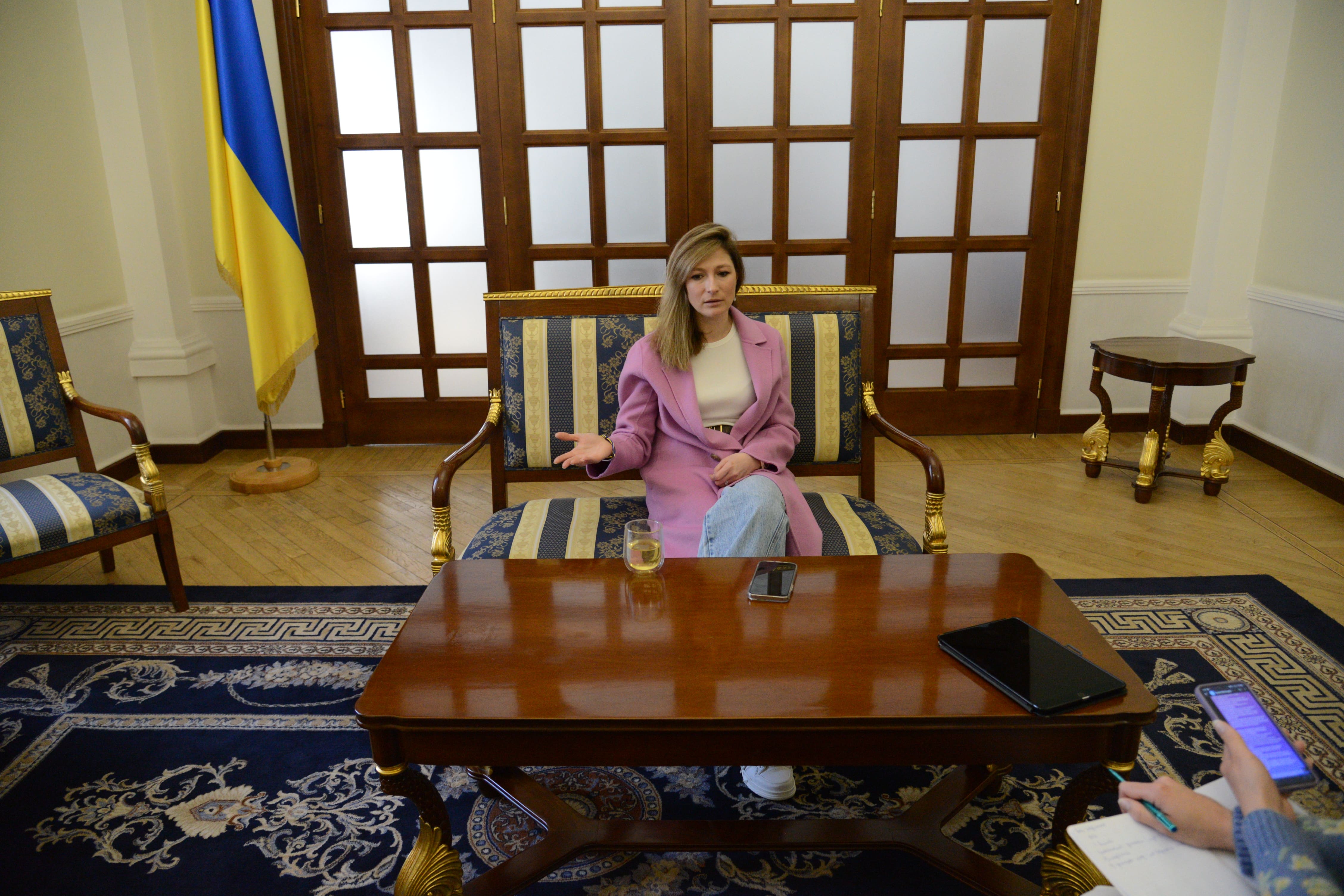 Photo by Zoya Shu, Kyiv Post
Photo by Zoya Shu, Kyiv Post
There are many such cases. Recently in Bakhchysaray, at a Crimean Tatar wedding, the song “Oh, the Red Viburnum in the Meadow” (it sounds like: “Oi u luzi chervona kalyna” in Ukrainian) was heard. For this, the owner of the establishment was fined, and the musicians who played the song were forced to publicly apologize to the people of Russia for the offense. This proves that there is no freedom in Crimea for those people who value it. It seems to me that it is in the DNA of the Crimean Tatars and Ukrainians.
I will say that today Crimea is such a prison. It’s a torture chamber where the Russian Federation tests its repressive methods. This is, you know, the apotheosis of Putin’s crime. He wants to make Crimea a showcase of his glory, but it seems to me it will be a showcase of his shame.
Practically the whole world supports the fact that Crimea is Ukraine and that Crimea should be part of Ukraine. However, there are opinions that maybe we should negotiate about Crimea, maybe we don't need to liberate it by military means, and maybe some partners will eventually push Ukraine to give up Crimea. What do you think we should do to prevent this from happening?
First, we must be sober and understand that such compulsions will always be for various reasons.
Secondly, we created an unprecedented format called the Crimea Platform. This is a unique international coordination mechanism that today unites 61 countries of the world and international organizations. The task of the platform is to unite within one seemingly simple thesis that Crimea is Ukraine in a system where strong countries assert their right in the language of force. Unfortunately, there are such examples in international politics.
Today, within the framework of the Crimea Platform or any other associations, we prove that we must learn the lesson related to Crimea forever because in 2014 we failed to do this. As a country, we were not able to repel the Russian Federation. The world as an international community also did not stop the evil – the country that is a permanent member of the UN Security Council, the nuclear country that guaranteed the security of Ukraine according to the Budapest Memorandum.
The Crimean Tatars never had any illusions about Russia.
In general, it should guarantee the security of the world because Russia is one of ‘the chosen’ with the right of veto in the UN. Instead, today it uses the right of veto as a license to kill Ukrainians. So, we didn’t pass that test, we didn’t learn that lesson – we failed and today we have the consequences.
Having gained experience and wisdom, we should learn the lesson of Crimea forever, and not allow Putin to achieve his goals now. The events of 2014 showed that Putin perceives diplomacy as a weakness. He also perceives attempts to negotiate with him or to make compromises as weakness. That is, we need to talk to the aggressor in his language – the only language he understands.
The Crimea Platform has two tasks. The first one is to prove to the world that Crimea is part of Ukraine, and that there can’t be a completely independent and sovereign Ukraine without Crimea. The second one is to explain that to our society because it is not unanimous about the future of Crimea.
There are several important things here, including the fate of the Crimean Tatars as the indigenous population. There is a social contract between the Ukrainians and the Crimean Tatars as representatives of one political nation.
These are unprecedented things that the Crimean Tatars have been striving after for 30 years: Ukraine recognized the Crimean Tatar people as the indigenous people and accordingly recognized the right of the Crimean Tatars, Karaites and Krymchaks to their own land and that it is unacceptable to bargain over Crimea.
Today, the political leadership, including President Volodymyr Zelenskyy and the ambassadors from various countries, say that Ukraine will be regaining Crimea. This is the inalienable right of Ukraine to self-defense. We ourselves determine the way we will be returning to Crimea. Today international partners are unanimous in their opinion that Ukraine will independently choose the way to return to the peninsula.
Undoubtedly, this might be the military way because it is the way we liberate the territories today. However, we cannot rule out the use of diplomacy. Anyway, the basis of peace in Ukraine is territorial integrity, including Crimea and the city of Sevastopol.
Would you advise the Crimeans to prepare for hostilities such as those taking place in Bakhmut?
What was the challenge for the Crimeans? The challenge is difficult – mobilization and service in the Russian army. Those who had the opportunity evaded or left Crimea not to be forced into the Russian army.
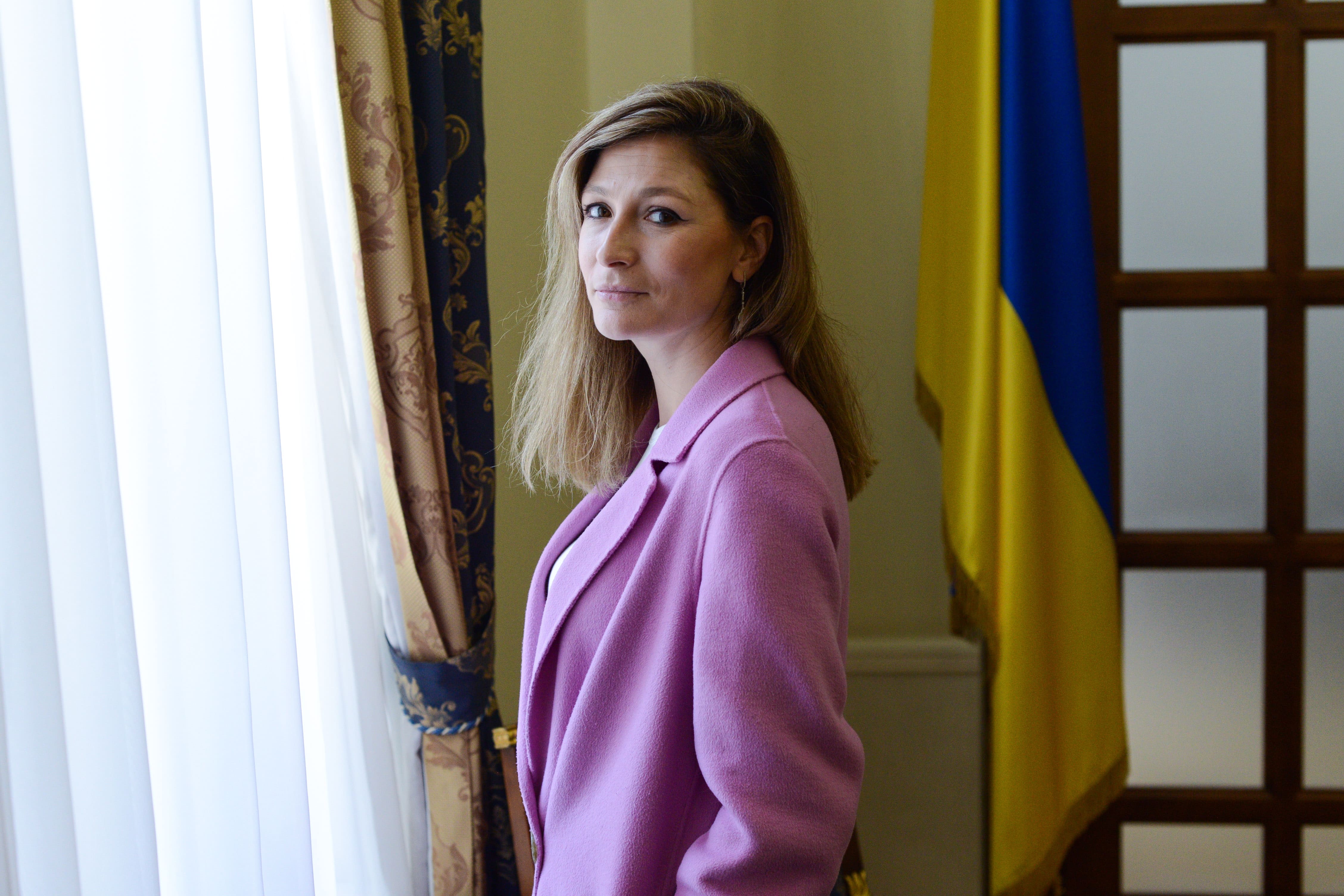 Photo by Zoya Shu, Kyiv Post
Photo by Zoya Shu, Kyiv Post
Russia’s cynicism has no limits. We see how the citizens of Ukraine are pushed into the ranks of the Russian army and sent to fight against the Ukrainians. Therefore, everyone who had the opportunity tried to avoid it.
I don't think it’s worth modeling the situation now because we must be careful. The message we give to all our partners is that the struggle for Crimea is inevitable. How it will take place will depend on the military operations and the counteroffensive that is being prepared. As of now, it is difficult enough to say anything. We all live in times when it’s impossible to plan even a few weeks ahead.
Has the persecution of the Crimean Tatar people tightened?
It seems to me that the cases of repression have strengthened, although, in principle, we should look at trends here. When we talk about the Crimean Tatars, we should know at least several key historical facts.
There are, let’s say, three pillars of this story. It began when the Russian Empire first appeared in Crimea. The peninsula is not “originally Russian land” as Russian propaganda claims. The Russian Empire came to Crimea in the 18th century, annexing the peninsula and making the Crimean Khanate cease to exist as a state. All Crimean Tatars, aristocrats who did not bow and scrape to Russian Empress Catherine the Great were forced to leave the peninsula. A very serious outflow of the population began.
For 100 years after the first annexation, one-third of the indigenous population left for modern Bulgaria, Romania, and Turkey. A huge diaspora of the Crimean Tatars – according to various estimates, from 2.5 to 5 million people – lives in Turkey. Today they are citizens of Turkey, but they remember their ancestors from Crimea.
The second difficult and tragic episode in the history of my people is the deportation in 1944. On May 18, we will once again remember those who died, were killed during deportation. Because of this genocide, every second Crimean Tatar died. By the way, the deportation took place half a year before the Yalta Conference held in February 1945.
I will say that today Crimea is such a prison. It’s a torture chamber where the Russian Federation tests its repressive methods.
There’s such an adage that the winners are not judged. The Soviet Union, in particular, Stalin was not held accountable for these crimes against the Crimean Tatar people who were forbidden to return to Crimea. Later they could go to Crimea but only as tourists.
There were thousands of cases when the Crimean Tatars were repeatedly deported in the 1960s and 1970s when trying to come to Crimea. They were taken to the Kherson region and settled around Crimea, that is, in the Kherson region and Kuban.
As soon as it became possible – from the end of the 1980s – thousands of the Crimean Tatars began to return home, while the process of repatriation was very complicated. Russia avoided responsibility for all crimes, even after the fact. Today it pretends that there are no Crimean Tatars in Crimea.
Therefore, all the events of 2014 when Putin's Russia came to Crimea again plunged the Crimean Tatars into that time of repression, in which more than one generation grew up, was born, and faced repression. It is logical that our people took an anti-Russian position.
The self-governing bodies, the Mejlis and the Qurultay, boycotted the so-called Russian referendums. The Crimean Tatars suffered repression, and their leaders and activists were sent to prison.
They are called religious extremists and Muslim terrorists – although until 2014 there had been not a single act of terrorism in Ukraine. There had been no such bloodshed events in Crimea until Russia came and started creating the myth that there were Muslim extremists in Crimea, and talked about the threat of terrorism. This is cynicism, a distortion of reality and Russia forced millions of people to believe it.
How many Crimean Tatars have been mobilized?
There is no number because today the authorities there have limited monitoring capabilities. Human rights organizations voice various data, but we do not have a specific figure that could be verified.
In your opinion, after the liberation of Crimea, will Sevastopol again become a naval base of Ukraine? Should it become a NATO military base?
It is difficult to answer this question unequivocally now because it is within the framework of Ukraine’s participation in the alliance. Yes, our foreign policy foresees joining the EU and NATO.
Yes, these are ambitious tasks. It seems to me that after the war the NATO countries themselves will be interested in accepting Ukraine into the alliance because we will not be just asking for or expecting security guarantees but our country itself will contribute to such security.
Therefore, I think that as soon as the future of Ukraine is clear from the point of view of the end of the war and its path afterward, then it will be necessary to resolve the issue of the status of the Autonomous Republic of Crimea and the city of Sevastopol. This issue is within the framework of the Crimean Tatars’ right to self-determination.
Today there is discussion about what will happen to Crimea after Ukraine returns to the peninsula: whether the status will remain the same, or the autonomy will be abolished, or it will be something like national autonomy.
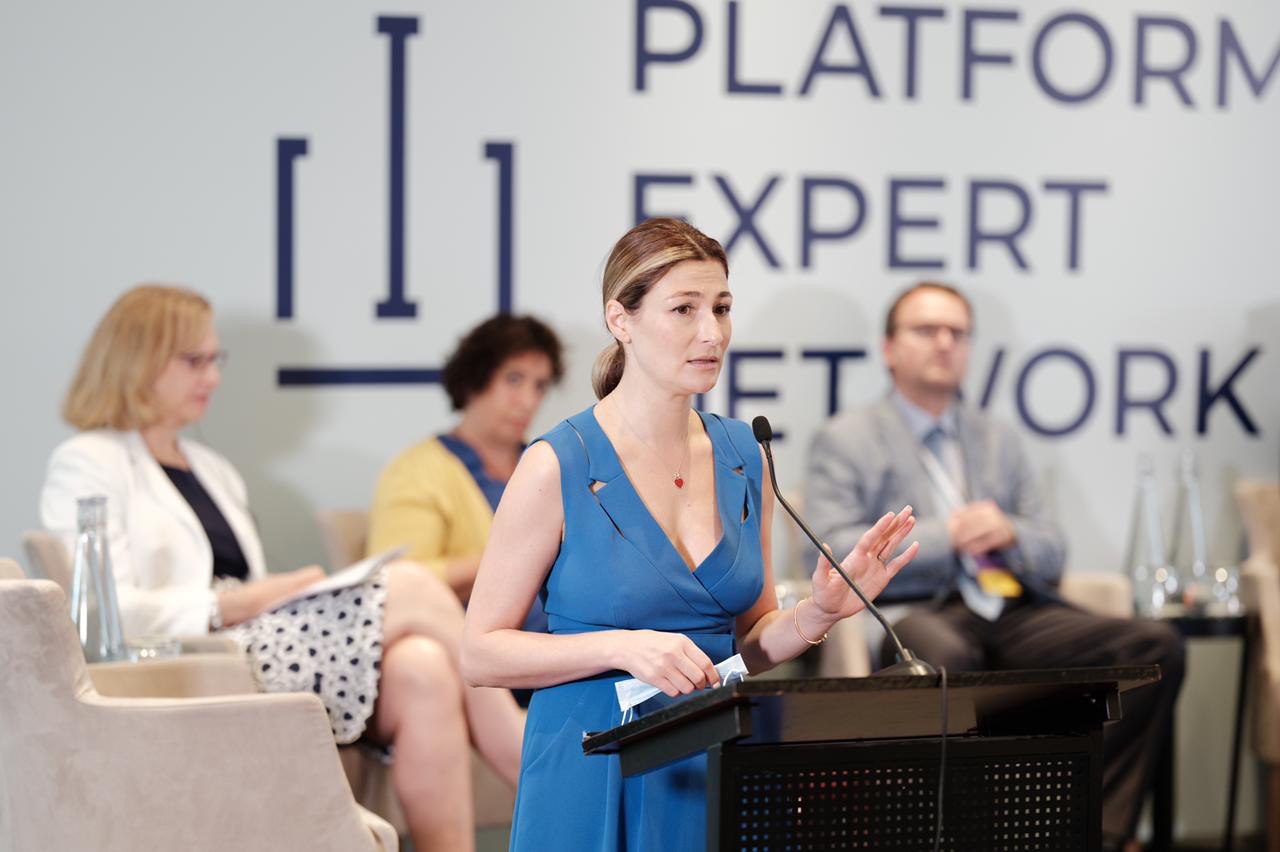 Photo by Ministry of Foreign Affairs of Ukraine
Photo by Ministry of Foreign Affairs of Ukraine
Which option do you support?
I believe that the best option is to create the National Crimean Tatar Autonomy. I will explain why. Ukraine considers itself a European state.
As a citizen of my country, I have had the expectation all these years that we would be recognized as such a country. This expectation is fair because we are fighting for this European reality, European values, for the path to the European Union.
Ukraine expects membership in the EU, while the Crimean Tatars expect the right to determine their future on their land because we were born as the people on this land and, of course, we want to determine our future.
It is important – and few people know about this – that in the 1990s, when the Crimean Tatars were returning to Crimea, the first Qurultay was assembled in 1992. The Crimean Tatars determined that their goal was national territorial autonomy within the Ukrainian state. They have always believed that they were part of the Ukrainian nation.
Even the fact that the Ukrainian language in Crimea was studied mostly by the Crimean Tatars, while Ukrainian teachers were representatives of the Crimean Tatar people means that they always preferred to be integrated into the Ukrainian environment.
Moreover, today we are united in our fight against the Russian invader. The Crimean Tatars never had any illusions about Russia.
Today international partners are unanimous in their opinion that Ukraine will independently choose the way to return to the peninsula.
What is the role of Turkey in determining the future of Crimea now? How do you see its role in the future?
It’s not even about Crimea, it has a broader context. Turkey is a very influential country, which today actively helps Ukraine with various issues, including military, technical cooperation, and grain agreements thanks to the efforts of its President Recep Erdogan.
Presidential elections will be held in Turkey soon. The results of these elections are very important for Ukraine. Turkey has a serious influence in the Black Sea region, on the track of the Russian-Ukrainian war and the attempt, let’s say, to take diplomatic steps to solve certain issues. Therefore, it seems to me that it is strategically important for us to build friendly relations with Turkey.
The Republic of Turkey at all levels unanimously recognizes the status of Crimea as part of Ukraine. I see no reason to doubt this position, I don’t think it will change.
You can also highlight the text and press Ctrl + Enter


